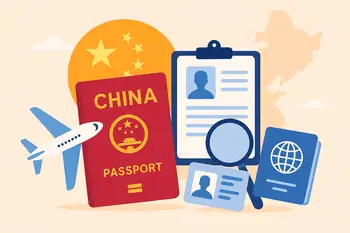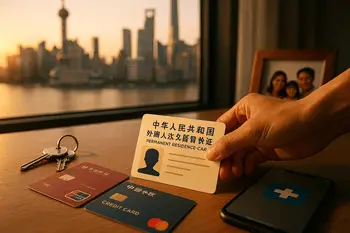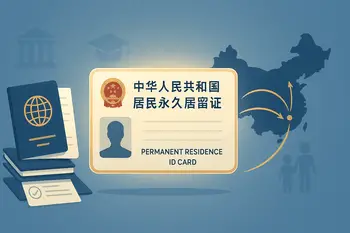
When living or traveling in China, converting your home currency to Chinese yuan (CNY), also known as renminbi (RMB), is essential.
However, China’s strict currency regulations and unique financial systems can make the process confusing for newcomers.
This guide will walk you through the most efficient and cost-effective ways to exchange foreign currency in China, including tips, pitfalls to avoid, and the best services to use.
Understanding China’s Currency Exchange System
China’s currency exchange system is tightly regulated by the People’s Bank of China (PBOC).
Foreign currency can only be exchanged through authorized channels, such as banks, ATMs, and licensed money transfer services.
It’s important to note that there are limits on how much foreign currency you can exchange or bring into the country.
For example:
- Cash Limits: Travelers can bring up to $5,000 USD (or equivalent) into China without declaring it. Amounts exceeding this must be declared at customs. (Source: China Customs)
- Exchange Limits: Individuals are typically limited to exchanging $50,000 USD worth of foreign currency per year. (Source: SAFE)
Understanding these restrictions will help you plan your finances effectively.
Methods of Exchanging Currency in China
1. Banks
Banks are the most reliable and secure option for exchanging foreign currency in China.
Major banks like the Bank of China, Industrial and Commercial Bank of China (ICBC), and China Construction Bank (CCB) offer currency exchange services at competitive rates.
| Pros | Cons |
|---|---|
| Secure and reliable. Competitive exchange rates. Multiple branches across the country. | Longer processing times. Limited operating hours. May require identification and proof of address. |
What You’ll Need:
- Passport (mandatory).
- Visa (sometimes required).
- Proof of residence (for large transactions).
Tips:
- Visit during business hours (typically 9:00 AM to 5:00 PM, Monday to Friday).
- Use the official websites of banks to check exchange rates in advance. For example, Bank of China Exchange Rates.
2. Currency Exchange Counters
Currency exchange counters are available at airports, hotels, and tourist hotspots.
While convenient, they often charge higher fees and offer less favorable rates compared to banks.
| Pros | Cons |
|---|---|
| Convenient locations. Extended operating hours. Quick transactions. | Less favorable exchange rates. Higher service fees. Limited availability outside major cities. |
Recommendation:
- Use these counters only for small amounts or emergencies. For better rates, exchange a small amount to cover immediate expenses and find a bank or ATM later.
3. ATMs
ATMs are a convenient way to withdraw local currency directly from your foreign bank account.
Most ATMs in China accept international cards from networks like Visa, MasterCard, and UnionPay.
| Pros | Cons |
|---|---|
| Widely available. 24/7 access. Competitive exchange rates. | ATM withdrawal fees. Daily withdrawal limits. Possible card compatibility issues. |
Tips:
- Notify your bank of your travel plans to avoid card blocks.
- Check with your home bank about international withdrawal fees. Some banks, like Charles Schwab or Revolut, reimburse ATM fees.
- Use ATMs at major banks like ICBC or Bank of China to reduce the risk of card skimming.
4. Money Transfer Services
Money transfer services like Wise (formerly TransferWise) and SkyRemit are excellent for sending money to China, where it can be collected in local currency.
These services are particularly useful for larger sums.
Wise
- Website: Wise
- Pros: Real-time mid-market exchange rates, no hidden fees, and 24/7 customer support.
- Cons: Delivery times may vary depending on the recipient’s bank.
SkyRemit
- Website: Sky-remit
- Pros: Fast transfers (as quick as 30 minutes), transparent fees, and 24/7 English customer service.
- Cons: Requires initial document submission and charges a fixed fee plus a variable fee.
Recommendation:
- Use these services for larger transfers to save on fees. For smaller amounts, ATMs or banks may be more cost-effective.
5. Digital Wallets (Alipay and WeChat Pay)
Digital wallets like Alipay and WeChat Pay dominate financial transactions in China.
While they don’t directly exchange foreign currency, you can link them to your international credit card or top them up via services like Wise.
| Pros | Cons |
|---|---|
| Widely accepted across China. Convenient for daily transactions. | Requires setup and verification. May not work with all foreign cards. |
How to Set Up:
- Download the apps: Alipay or WeChat Pay.
- Link your international card or use a service like Wise to top up your wallet.
Tips for Exchanging Currency in China
- Compare Exchange Rates:
- Use online tools like XE Currency or OANDA to monitor exchange rates and compare providers.
- Avoid Airport Exchanges:
- Airport counters often have the worst rates. Exchange a small amount for immediate needs and find better options later.
- Carry Small Bills:
- Many small businesses and taxis may not have change for large bills. Keep smaller denominations for convenience.
- Beware of Scams:
- Avoid unlicensed exchange counters or individuals offering to exchange money. Counterfeit currency is a common issue.
- Keep Receipts:
- Always keep your exchange receipts. These may be required if you want to exchange leftover yuan back into your home currency.
- Monitor Exchange Rates:
- Timing your exchanges when rates are favorable can save you money. For example, exchange during periods of currency stability.
Emergency Advice
If you lose access to funds:
- Contact your bank immediately to report the issue.
- Use services like Western Union (Western Union China) for emergency cash transfers.
- Visit your country’s embassy or consulate for assistance.
Conclusion
Exchanging foreign currency in China requires preparation and knowledge of the available options.
Whether you choose banks, ATMs, or online services like Wise and SkyRemit, understanding the pros and cons of each method will help you make informed decisions.
By following the tips provided and staying vigilant, you can maximize your funds and minimize fees, ensuring a smoother financial experience during your stay in China.
For more information, check out:


